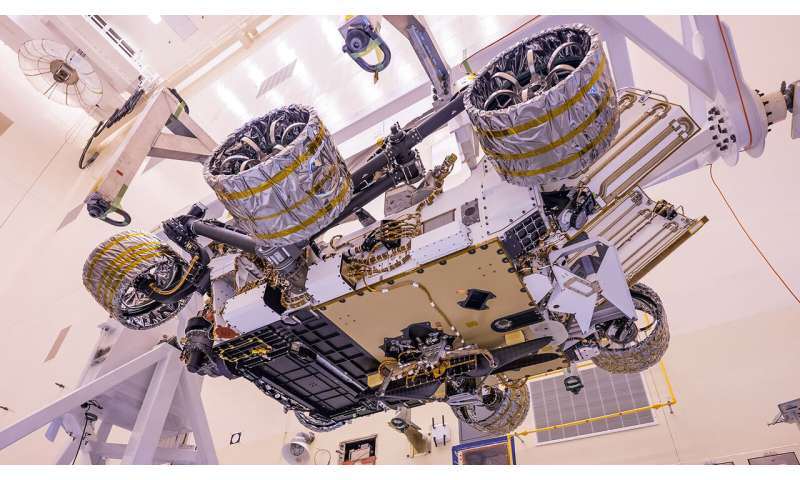Best of Last Week: The Mars Helicopter, reducing delays in WiFi, and the best materials for DIY coronavirus masks

It was a good week for space research, as a team working on NASA's Mars 2020 Perseverance rover project reported on final preparations for the spacecraft and the sky crane—along with the Mars Helicopter, which will be the first probe to attempt power-controlled flight on another planet. Also, a team with members from the Tokyo Institute of Technology and Kyoto University explained the origins of Uranus' oddities, such as its unique tilt. And a team at Clemson University College of Science captured the first-ever photo proof of a powerful jet emerging from colliding galaxies.
In technical news, a YouTuber named Kris Slyka posted a video showing how to record low-resolution video on old audio cassette tapes. Also, a team of engineers at USC announced that they had developed a better redox flow battery that they claim could solve the electricity storage problem constraining widespread use of renewable energy. And Intel announced that it was ready to unveil its new 10-core, 5.3GHz processor, which will also have 20 threads and work in conjunction with the company's Thermal Velocity Boost technology. And a team at MIT demonstrated a way to reduce delays in wireless networks—a congestion control scheme designed to reduce lag time and increase the quality of data intensive applications such as video.
In other news, a team of researchers affiliated with several institutions in Japan used the Tokyo Skytree to test Einstein's theory of general relativity by placing two finely tuned optical lattice clocks, one at the base and one on the 450-meter observatory floor of the Japanese landmark. And a team at the University of Göttingen found evidence suggesting that on average, only 6% of actual COVID-19 infections are detected worldwide. Also, a large team of researchers from China, the U.S. and Brazil announced that they had produced the world's most complex microparticle—a synthetic that they claim outdoes nature's intricacy.
And finally, if you have been frustrated in your attempts to obtain quality masks to keep you safe from COVID-19, you might want to check out the advice offered by a team of filtration engineers at Georgia Tech's School of Chemical and Biomolecular Engineering—they describe how to create do-it-yourself face masks using readily available materials such as tightly woven or knitted fabrics.
© 2020 Science X Network